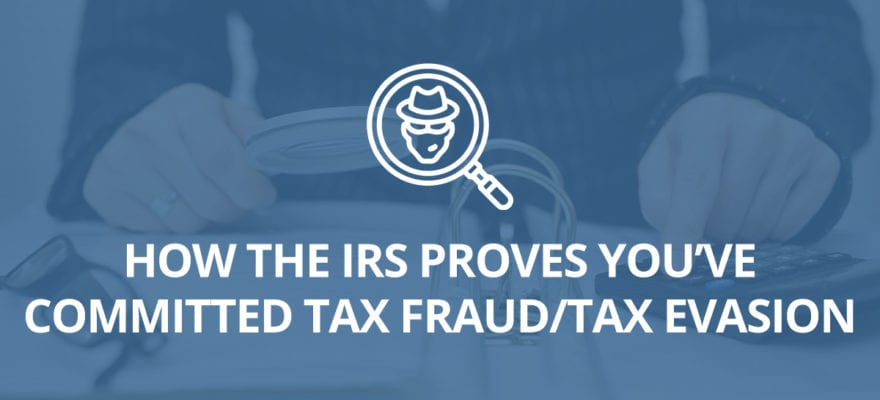Out of all of the offenses in the U.S. Tax Code, tax fraud results in the highest number of charges being laid. According to the U.S. Sentencing Commission, 517 of the cases it handled in 2018 involved income tax evasion. Incidentally, the district of New Jersey was one of the top five districts for tax fraud offenders that year, with 17 cases.
Common examples of tax fraud include:
- Omitting income from your tax return. This is often seen in cases where the business or employee has a cash-based income.
- Claiming false deductions.
- Claiming personal expenses as business deductions.
One of the biggest questions about the enforcement process is ‘How does the IRS prove tax fraud?’ It starts by claiming the following three elements under Internal Revenue Code 7201.
- The amount of taxes due was substantially understated.
- There was an active effort to evade taxes (e.g. filing a false return).
- The evasion was willful. In other words, you intentionally tried to under-pay or avoid paying taxes. An honest mistake does not qualify, although you may need to file an amended return and pay any additional taxes owed.
Anyone who files a false return can be prosecuted. This includes taxpayers, accountants, bookkeepers, professional tax preparers, and even spouses who sign the return unless they successfully apply the innocent spouse defense.
What If There Are No Financial Records?
The IRS generally has three years to audit you from the date of filing. If you are audited and important records are missing or incomplete, the government may reconstruct your income using methods like the following:
- Excessive spending. If you’re spending a lot of money, especially an amount that is inconsistent with your reported income, the IRS may look at the purchases to determine unreported income.
- Increase in net worth. If your net worth increases since the first year started, it is assumed that unreported income is involved, although you can refute this assumption by showing that you received nontaxable income, such as an inheritance.
- Markups. If you own a retail business, the IRS may estimate your income by multiplying your inventory by a certain profit margin. A common defense is that you applied a lower profit margin: not all businesses use the same markups.
Defenses to Charges of Tax Fraud
If the government determines that you misrepresented your income or had assets that you failed to report to avoid paying taxes on them (e.g. offshore accounts), it may charge you with tax evasion. Depending on the circumstances of your case, an experienced tax attorney can help you present defenses like the following:
- No deficiency exists. You have already paid all taxes owed and the alleged deficiency is not taxable.
- Amendment of your return. You filed an amended return before the IRS investigation began, showing that you intended to comply with tax code requirements.
- Third-party defense. You relied on an accountant or another tax professional to prepare and file your taxes. For this defense to be valid, you must have provided the tax preparer with full and accurate information about your income.
- Innocent spouse relief. If your spouse underreports income or inflates deductions on your joint tax return, you may be able to obtain relief from penalties if you were unaware of the inaccuracies.
If your defense is successful, you may still owe an unexpected tax bill, but your attorney can help you propose a payment plan or offer in compromise that makes it more manageable financially.
Speak with a New Jersey Tax Attorney
Those found guilty of tax fraud can be subjected to harsh penalties. If you are convicted of tax evasion, which is a felony, you could face up to five years in prison and pay a fine of up to $250,000 ($500,000 for corporations). With so much at stake, it is imperative that you retain an experienced tax fraud defense attorney as soon as you learn that you are under investigation.
At Paladini Law, we have a solid track record of successfully defending clients in federal tax fraud investigations and prosecutions. Attorney Brad Paladini has years of experience in representing and defending taxpayers, businesses, and tax professionals accused of tax fraud, and will spare no effort to bring your case to a positive conclusion. To schedule a consultation, please call 201-381-4472 or complete our online form.



